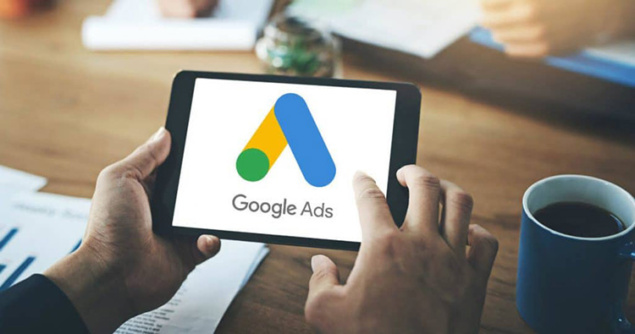Never heard of PPC? Not sure what PPC management is, or whether you need PPC management services?
Don’t panic, we’ve got the answers you need and some good news.
Even if you’ve never heard of PPC (or you’ve seen it around but you’ve never quite been sure what it is), you’re definitely familiar with it. You see, PPC stands for Pay-Per-Click (PPC) advertising. And it’s everywhere.
For example, imagine you’re searching online for something using a search engine like Google. Then you see ads that appear alongside the search results. Well, these ads are (almost certainly) PPC.
And getting your PPC management right for e-commerce is very important because PPC offers some major advantages:
- Roughly 75% of internet users find that search ads help them find the information they’re looking for.
- PPC’s payment structure is flexible (you pay for the clicks you get, as the name suggests). This means it can be used either as a core element of your overall marketing and advertising strategy or as a useful add-on to drive some extra traffic and sales.
You’re probably thinking: “I already know what it is, and it’s super useful. Let’s get started right now!”
Well, hold your horses just a second there.
As simple as PPC may sound, the question is – are you capable of using it effectively and avoiding the most common pitfalls that can make a sizable dent in your budget? In other words, it’s time to think about PPC management.
In this article, we’ll cover everything you need to know about PPC management. This includes how to create, launch, and optimize effective PPC campaigns that give you the best ROI (return on investment) available. We’ll also discuss whether you need PPC management services from a PPC management company.
But first, let’s define our terms.
What is PPC management?
PPC is a popular online advertising model. It is used to drive traffic to websites and here’s how it works:
- an advertiser (that’s you) pays an ad network (also known as a demand-side platform, these networks connect advertisers to the websites that sell the ad space) for each click on an ad.
So, how much does it cost (a very important question in PPC management)?
Well, with PPC through search engines (called paid search) there is bidding to consider:
- an advertiser (that’s still you) bids on relevant keywords and phrases in the hopes of boosting the visibility of their ads. This depends on whether the ads are text- or image-based.
By contrast, PPC on content sites is usually charged a fixed price for each click.
Should I hire PPC management services from a PPC management company?
To get the most out of Pay-Per-Click advertising, some companies hire an in-house specialist. Much like they hire IT management services for their website checkup. They can also hire external PPC management expert(s) to take over their PPC strategy and budget.
So, what are the pros and cons of this approach?
The benefits of hiring a PPC management company
- External companies offer a range of PPC management services. They can take charge of tasks like identifying audience-specific keywords, selecting the most appropriate paid media channels, and looking for exploitable gaps in the strategies used by the competition
- Because of their experience and wide field of knowledge, PPC management companies can optimize PPC campaigns so they have a better ROI and keep your ad spend down. This means, although they are more expensive to hire, campaigns with companies providing PPC management services may end up generating more bang for your buck.
The disadvantages of hiring a PPC management company
- The main disadvantage is cost. It is more expensive to hire an outside agency than it is to do it yourself.
- You also miss out on learning and know-how. If you take a DIY approach, it may be slower and less effective at first, but over time you will learn and improve. And this learning then stays within your company. Hiring a PPC management company will limit the growth of your e-commerce expertise.
Ultimately, whether you choose to bring in outside help or do everything yourself, you’re going to need to understand the basics of PPC management. So, let’s get into some details.
The importance of PPC for e-commerce
Big or small, e-commerce businesses are becoming increasingly reliant on the PPC model for their success online. Just look at the stats.
- According to a study conducted by Clutch in 2018, PPC is used by 45% of businesses that have less than 50 employees, and 74% of businesses with 50 employees or more.
- As many as 79% of brands say that PPC is a huge driver for their success.
- Wolfgang Digital’s KPI report for 2020 has shown that in 2020, paid search advertising surpassed organic search engine traffic as the top revenue-generating channel in digital marketing.
- This report also found that PPC drives roughly 36% of the revenue for retail stores and a staggering 46% for businesses that operate exclusively online.
These numbers pretty much speak for themselves. The bottom line: you need PPC for your e-commerce business.
The pros and cons of PPC
For most businesses, the pros of PPC easily outweigh the cons. But let’s take a look at them so you can make your own mind up.
The pros of PPC:
- Measurable results. PPC networks like Google Ads provide a variety of metrics for tracking ad visibility, user interactions, and performance. You can measure everything in terms of ROI, so you know exactly what you’re getting for your ad spend.
- Quick traffic boost. As soon as your PPC ad goes live, you can expect to see your traffic numbers go up immediately. In addition, much of the new traffic will be from users ready to purchase because the products/services that you sell are exactly what they’ve been searching for online.
- Tons of platforms. While Google Ads remains the boss of PPC, you also have Facebook, Twitter, LinkedIn, YouTube, Microsoft advertising, Instagram, and many other networks to choose from.
- Global reach. You can target your PPC ads for local or international consumption, depending on your campaign goals.
- Big data for advanced targeting. The biggest PPC networks will provide you with tons of data, enabling ultra-precise targeting based on every conceivable identifier (age, gender, interests, etc.).
The cons of PPC
- Clicks don’t always mean sales. Just like any other method of online advertising, PPC is a bit of a gamble. If the users that have landed on your website aren’t interested in what you’re selling, the ad will essentially have gone to waste. To make sure your ad spend drives genuinely interested buyers, you’ll need to optimize your conversion strategy and make sure what is promised in your ads is what gets delivered on your site.
- You’ll need to keep optimizing. Getting into the nitty-gritty of PPC management and learning what your audience wants can take a lot of time and effort. Taking the lazy route and focusing on quantity over quality is a recipe for failure, and might discourage you before you even see any appreciable results.
PPC on Google – everything you need to know
As we’ve already mentioned, Google is the best place to start when it comes to PPC Management.
Why? Well, combined with Google’s 3.5 billion daily search queries, the high click-through rate of Google Ads gives you an excellent opportunity to reach your target audience without spending a fortune.
According to Google’s own data, businesses that advertise on its platforms earn about $8 for every $1 they spend on Google Ads.
Ways to make Effective PPC Ads on Google
You will want to push your paid search ads as high as possible on Google’s algorithmic ranking. But bidding on selected keywords that match searchers’ intent is not the only factor standing between success and failure. Here are some of the most important variables to keep in mind for your next campaign.
Location
This refers to the geographical area where your ad will be displayed. Here you have three basic options:
- If you own a physical store – choose the surrounding area with a decent radius;
- If your business is online only – choose the locations where you can ship;
- If you sell products/services that are accessible worldwide – choose markets that you judge will help you make the most sales!
AdRank and Quality Score
This one is super important, but also a bit complicated. So let’s break it down step by step to avoid any confusion:
- the match between your ad and searchers’ intent determines your click-through rate (CTR);
- landing page experience, expected CTR, and ad relevance help to determine your Quality Score. This is what you should focus on the most when first setting up the ad.
- in addition, the higher your Quality Score, the less you’ll pay for the ad click;
- your Quality Score (QS) + your bid amount determines your AdRank, i.e., how high your ad will be placed.
Match Types
Match Types basically define how exact the match should be between your ad and the paid search terms you are targeting.
You have 4 Match Types to choose from. At the beginning, when you don’t yet have all that much information about your target audience’s search habits, it’s best to go with a broad approach. So choose a Match Type that is not so exact.
Then you can narrow down your approach over time, choosing searches that are an exact match for the terms you are targeting with your paid search ads.
Ad Copy
The text part of your paid search ad (the ad copy) should contain a catchy and informative headline, followed by a short description of what you’re offering.
Make sure that your ad copy aligns with searchers’ intent and target keywords. It should also point to a clear solution to a specific problem your target audience is facing.
Ad Extensions
These allow you to provide users with additional information (such as phone number, location on the map, additional links, etc.). This encourages shoppers to interact with the ad.
Since Google’s Ad Extensions are free, there’s no reason not to use all of them. But there are a couple of extensions that may not always be relevant:
- Offer Extensions: these are relevant when you’re running a promotion.
- App Extensions: these are only relevant if you have a downloadable app for your e-commerce store.
PPC ad best practices
The basics of running effective PPC ad campaigns are fairly straightforward. But finding the balance that will maximize impact and minimize ad spend takes a good deal of time and effort. Here are some tips that will hopefully enable you to trim down on the “error” part of the “trial and error” process.
PPC tip 1: work on your keywords
Picking exactly the right keywords should be one of your top priorities. Go too broad and there’s a risk your ads will be displayed to lots of people who just aren’t interested. Go too narrow and you risk unnecessarily reducing your reach and missing out on potential sales.
You won’t find the perfect balance from the get-go – that’s fine. Just keep a close eye on which keywords are generating clicks, and then tailor your PPC ads to them over time.
PPC tip 2: improve your Quality Score
Your Quality Score is THE most important factor that will determine the ranking of your ad. And ranking well means PPC success.
There are plenty of e-commerce stores out there that pay relatively little attention to their Quality Score. This means you have an opportunity to get ahead. Take notice of your current score and try to gradually improve it by tweaking the ad copy and improving your landing pages (more on this below).
Make an awesome landing page
Think of your landing page as a link in the chain that connects your ad with a purchase.
A good landing page should match your PPC advertising strategy. Shoppers should see the same keywords so they know the page is relevant. And you’ll need to provide just the right amount of information to close the sale.
E-commerce industry best practice suggests that a clean, minimalistic page is the best option in most cases. As soon as the page loads, the user should immediately see the relevant product/service and how to buy it, most likely in the form of a call-to-action. And don’t forget about page load speeds - make sure you have compressed your images so your page loads faster.
PPC implementation strategies for e-commerce
Let’s finish up this guide with a few (slightly more) advanced strategies that will help you maximize your ROI.
Strike a balance between specific and broad keywords
The table below illustrates an important concept. Keyword phrases that are both broad and specific have a double advantage. There is low competition for them, and they convert well.
Take this example. Targeting a broad keyword phrase like “t-shirt” will be so competitive, and will reach so many users, there’s virtually zero chance you’ll connect with the right shoppers. On the other hand, targeting a super-specific keyword phrase like “Blue American Apparel slim fit medium size t-shirt” will exclude a lot of shoppers who might actually be interested in what you have to offer.
Finding the right balance - in this case, “Blue American Apparel t-shirt” - will increase the effectiveness of your PPC campaigns.
Remember what we said about picking keywords that are neither too broad, nor too narrow?
Well, one way to achieve this is actually to use both. That’s because some users who’ve clicked on your ad will inevitably still be in the research stage - they have a specific need and they’re investigating potential solutions. But others will be more interested in comparing prices - they already know what they’re looking for and are now looking for the best deal.
To convert both, you should bid not only on the broadest and therefore the most expensive keywords, but also on a number of ultra-specific ones that won’t cost you nearly as much. The latter will bring in fewer customers, but they will be more likely to make a purchase.
Identify high-converting keywords and increase your bids for these
Broad keywords enable you to cast a wide net with relatively little expense. But once you have a decent amount of information, try to identify the keywords that generate the most clicks and focus more on these.
What you’ll likely find is that the search terms shoppers use to look for your products are a bit different from the ones you expected. This is understandable because user queries often include specific details that are next to impossible to predict.
Once you know which keywords actually convert, increase your bids and keep an eye on new emerging trends.
Use similar keywords to your competitors
Even though some buyers will be loyal to a specific brand, others will be less attached – especially if they see a similar product/service at a lower price.
Given this dynamic, it’s usually a good idea to bid on keywords that are close to what your competition is using.
But you should avoid bidding on branded keywords. First of all, your competitors might report you to Google. And secondly, your competitor will most likely be able to outbid you quite easily because they will have a higher Quality Score for inquiries that include their brand name.
Increase traffic quality via transparent pricing
Making ads that include pricing is a great way to filter out users that are less likely to convert and reduce your PPC budget.
Many of the users who click on your ads will be undecided. This means you could end up paying for clicks that don’t generate much revenue.
To reduce the number of non-converting users, be transparent about pricing in your ads. Those who are ready to buy will not be scared away by the price, and you won’t have wasted ad spend of shoppers whose budget doesn’t match your product.
PPC Management for e-commerce - the takeaways
Hopefully, this guide made the following points clear:
- PPC is a must for e-commerce.
- You can choose DIY or hire a PPC management company. There are pros and cons to both.
- Master Google first - it’s the most important platform for PPC.
- Start with PPC ad campaigns that focus on broad keywords. Then target more specific keywords once you have found out which keywords convert best.
Now you’ve got a clear idea of how PPC works, figuring out which types of ads to run is a logical next step. Take a look at this in-depth guide to 5 different types of Google ads for some inspiration.











